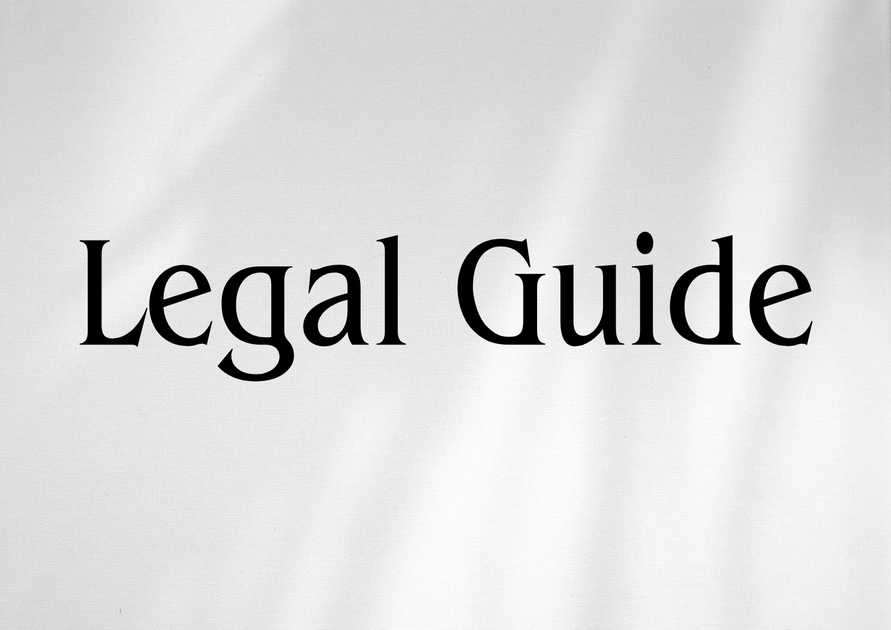Introduction: Navigating Saudi Arabia’s Debt Recovery and Enforcement Landscape—A UAE Perspective
Businesses and individuals across the Gulf must navigate a complex financial and regulatory environment. As cross-border trade and investment between the UAE and Saudi Arabia intensify—fueled by Vision 2030 reforms and greater economic integration—the risks associated with unsettled debts and financial disputes also mount. Understanding debt recovery and enforcement procedures in Saudi Arabia has therefore become essential for UAE entities, executives, and legal teams seeking to safeguard their assets, ensure contractual performance, and manage credit exposure.
This article delivers an in-depth, consultancy-grade analysis of the debt recovery and enforcement process in Saudi Arabia. It assesses legal frameworks, explores recent regulatory updates of strategic importance to UAE parties, and provides pragmatic guidance for effective compliance and risk mitigation. Throughout, we highlight practical parallels and divergences with UAE law, helping businesses anticipate legal challenges and opportunities in the Kingdom’s evolving legal landscape.
Table of Contents
- Legal Framework Governing Debt Recovery in Saudi Arabia
- Contractual Basis and Documentation Requirements
- Pre-Litigation Steps and Amicable Settlement Options
- Litigation Procedures: Filing and Progressing Debt Claims
- Enforcement Mechanisms: Judicial and Extrajudicial Tools
- Comparative Analysis: Debt Recovery in Saudi Arabia vs UAE
- Case Studies and Hypothetical Scenarios
- Risks of Non-Compliance and Recommended Strategies
- Conclusion and Strategic Outlook
Legal Framework Governing Debt Recovery in Saudi Arabia
Overview of Relevant Laws and Regulations
Saudi Arabia’s debt recovery and enforcement system is governed primarily by:
- Saudi Enforcement Law (Royal Decree No. M/53 of 1433H, as amended), which regulates the execution of judicial decisions, negotiable instruments, and debt instruments.
- Saudi Commercial Courts Law (Royal Decree No. M/93 of 1441H), establishing procedures and jurisdiction for commercial disputes including debt claims.
- The Implementing Regulations issued by the Ministry of Justice and related executive and regulatory orders.
These regulations intersect with Sharia law, which forms the bedrock of the legal system and influences principles relating to contract validity, interest, and enforcement. For UAE businesses, understanding these intertwined authorities is vital to structuring deals and pursuing recovery actions efficiently.
Key Provisions Impacting Creditors and Debtors
Recent amendments to the Enforcement Law and the introduction of digital litigation procedures have modernized debt recovery processes, shortening timelines and enhancing enforceability of foreign judgments—crucial for cross-border claimants. Notably, electronic filing and enforcement have lowered procedural barriers for UAE parties operating remotely or via local agents in Saudi Arabia.
| Instrument | Relevance to Debt Recovery |
|---|---|
| Enforcement Law (M/53 of 1433H) | Primary statute for execution of local and foreign debt instruments, judgments, and arbitral awards. |
| Commercial Courts Law (M/93 of 1441H) | Stipulates dispute resolution forums and procedures for commercial debt claims. |
| Implementing Regulations | Details procedural requirements and documentation for efficient case submission. |
Contractual Basis and Documentation Requirements
Contract Formation and Evidentiary Best Practices
Underlying every debt recovery process is the legitimacy and enforceability of the contract or debt instrument. In Saudi Arabia, only instruments deemed “executory” are directly enforceable:
- Negotiable instruments (e.g., cheques, promissory notes).
- Final and enforceable court judgments and arbitral awards.
- Acknowledgements of debt with clear terms, unconditional obligations, and defined maturity.
To minimize operational risks, UAE parties should ensure that:
- All contracts are documented in writing, in both Arabic and English (where possible).
- Instruments stipulate clear payment terms and jurisdiction clauses (ideally referencing the Saudi Commercial Court or an agreed arbitral institution).
- Signatories possess necessary authority and are properly identified to avoid challenges.
Electronic Documentation and E-Signatures
With the roll-out of digital procedures, including the Najiz Portal (Ministry of Justice), electronic contracts and e-signatures have been increasingly recognized in enforcement proceedings, provided compliance with Saudi E-Transactions Law (Royal Decree No. M/18 of 1428H).
| Aspect | Pre-Digital Update | Post-Digital Update |
|---|---|---|
| Document Format | Primarily physical/original | Accepts electronic and scanned originals |
| Submission | In-person at court | Online via Najiz Portal |
| Signatures | Wet signature required | E-signature (per E-Transactions Law) accepted |
Pre-Litigation Steps and Amicable Settlement Options
Obligatory Pre-Enforcement Negotiations
Saudi procedure places strong emphasis on amicable resolution before recourse to official enforcement measures. The Enforcement Courts and associated notaries encourage parties to initiate dialogue and, where possible, record settlement attempts, which can later serve as evidence of good faith in subsequent litigation.
Demand Letters and Notification Requirements
Before initiating formal enforcement, creditors are required to:
- Serve notarial demand and notification on the debtor, specifying debt nature, amount, and due date.
- Allow a prescribed response period—typically five days under current procedural rules—absent which formal enforcement proceedings may commence.
Negotiated Settlements and Mediations
Recent reforms have empowered Alternative Dispute Resolution (ADR) mechanisms, notably mediation under the Saudi Center for Commercial Arbitration. Settlements reached here may be rendered as enforceable orders, directly executable before the Enforcement Courts—a strategic shortcut for UAE-based creditors.
Litigation Procedures: Filing and Progressing Debt Claims
Jurisdiction and Competent Courts
Debt disputes in Saudi Arabia generally fall under the domain of:
- The Specialized Enforcement Courts, which exclusively handle enforcement of final instruments.
- The Commercial Courts for underlying contractual or commercial disputes (if a final instrument is not available).
Step-by-Step Litigation Process
- Registration of Claim via the Najiz online system, attaching required documentary evidence.
- Initial Review by court officials to verify form and jurisdiction.
- Notice to Respondent, providing opportunity to respond or settle.
- Hearing (if needed) and Adjudication based on written submissions, evidence, and, if required, witness testimony or expert reports.
- Issuance of Judgment—in summary matters (e.g., undisputed debt instruments), judgments are typically expedited.
Appeal and Review Options
Both claimant and respondent have the right to appeal decisions within thirty days—however, summary enforcement orders issued on negotiable instruments can proceed without delay, subject only to limited procedural review.
Timeframes and Efficiency of Proceedings
The implementation of digital platforms has reduced average debt claim resolution times to under six months for straightforward cases—comparable to UAE e-litigation standards introduced by Federal Law No. 6 of 2021 on Judicial Procedures.
Enforcement Mechanisms: Judicial and Extrajudicial Tools
Judicial Enforcement Tools
- Attachment and freezing of bank accounts and assets registered in the name of the debtor.
- Seizure and auction of movable/immovable property via designated electronic platforms (e.g., Etimad portal).
- Travel bans or restrictions on debtors.
- In certain cases, public disclosure of default through official channels.
Enforcement of Foreign Judgments and Arbitral Awards
Saudi courts will enforce UAE and other foreign judgments/arbitral awards under certain conditions, principally:
- Reciprocity of enforcement between Saudi Arabia and the originating country (note: the Riyadh Arab Agreement for Judicial Cooperation facilitates mutual enforcement with the UAE).
- The original judgment must not contravene Sharia principles or Saudi public order.
- Proper notification and fair process must have been afforded to the debtor in the original proceedings.
Extrajudicial Recovery: Negotiated Payment Plans and Settlements
Creditors may agree to out-of-court payment plans, but such settlements should be formalized via notarized agreements and notified to the Enforcement Court to obtain execution force.
| Tool | Process | Effectiveness |
|---|---|---|
| Asset Freezing | Upon application, order to banks/government registries | High—immediate restraint over assets |
| Property Auction | Electronic auction after appraisal | Moderate—subject to asset marketability |
| Travel Ban | Order issued against named individuals | High deterrent; applies to natural persons |
| Public Disclosure | Listing on enforcement portal | Reputational impact; encourages voluntary settlement |
Comparative Analysis: Debt Recovery in Saudi Arabia vs UAE
Although both Saudi Arabia and the UAE have modernized their debt recovery and enforcement systems, notable differences persist—especially in approach to interest, Sharia principles, and procedural formalities. The table below summarizes key distinctions and similarities relevant to UAE cross-border claimants:
| Aspect | Saudi Arabia | UAE |
|---|---|---|
| Legal Framework | Enforcement Law (M/53); Sharia-compliant regulations | Federal Decree Law No. 42 of 2022 (Civil Procedures) |
| Interest on Late Payment | Generally not permitted if usurious | Permissible per contract or law (subject to caps) |
| Enforcement of Foreign Judgments | Reciprocity required; Sharia review | More liberal, esp. for GCC awards (per Riyadh Agreement) |
| Digital Litigation | Najiz platform; widespread digitalization | MOJ e-Litigation; robust online systems |
Case Studies and Hypothetical Scenarios
Case Study 1: Recovery under a Cheque Default
A UAE supplier receives a post-dated cheque from a Saudi buyer that is dishonored upon presentation. Through the Najiz portal, the supplier files an electronic enforcement application. Within weeks, the court freezes the debtor company’s bank accounts, resulting in expedited repayment—an example of efficient electronic enforcement.
Case Study 2: Enforcement of UAE Judgment in Saudi Arabia
An Emirati logistics company secures a Dubai court judgment against a Saudi counterparty. Relying on the Riyadh Arab Agreement framework, it files for enforcement in a Riyadh Enforcement Court, attaching duly certified copies of the judgment and proof of due process. Provided all formalities are met, Saudi courts recognize and enforce the judgment—provided Sharia compliance is clear.
Hypothetical Risk: Non-Compliant Contractual Documentary
A UAE investor fails to stipulate a proper Arabic translation or omits critical contract terms. Upon seeking Saudi enforcement, the court rejects the claim for lack of a clear, unconditional, and “executory” obligation—demonstrating the pitfalls of inadequate documentation.
Risks of Non-Compliance and Recommended Strategies
Legal and Commercial Risks
- Procedural Rejection of claims due to incomplete documentation or improper notification.
- Adverse Costs for unsuccessful claimants, including attachment release and damages.
- Asset Dissipation if enforcement steps are delayed or improperly sequenced.
- Reputational Damage through public disclosure of default claims, affecting future business prospects.
Recommended Compliance Strategies for UAE Businesses
- Engage experienced legal counsel in both Saudi Arabia and the UAE to review and localize all contract documents.
- Opt for negotiable instruments (cheques, promissory notes) where feasible, as these constitute directly enforceable titles.
- Ensure full compliance with notification and procedural requirements, including Arabic translations and court-accepted formats.
- Where possible, consider arbitration with a seat in Riyadh or Dubai, ensuring enforceability under the New York Convention and local statutes.
- Utilize mediation and ADR as first-line tools—especially when time is of the essence or business relationships must be preserved.
| Step | Action | Responsible |
|---|---|---|
| 1 | Draft bilingual enforceable agreement | Legal/Contract Management |
| 2 | Engage local counsel to review Saudi requirements | Legal/External Consultants |
| 3 | Secure notarized instruments or cheques | Finance/Legal |
| 4 | Serve notarial demand in prescribed form | Legal/Notary |
| 5 | Submit claims electronically via Najiz | Legal/Authorized Representatives |
Conclusion and Strategic Outlook
The evolution of Saudi Arabia’s debt recovery and enforcement regime brings both opportunities and obligations for UAE businesses and multinationals. Digitization, accelerated procedures, and strengthened recognition of UAE and GCC judgments give creditors more robust tools—provided they pursue claims proactively and in full compliance with evolving legal requirements.
Looking forward, legal risk management will demand cross-border collaboration, meticulous contract drafting, and the leveraging of digital legal platforms. Firms should monitor ongoing Saudi reforms, especially under Vision 2030, to ensure optimal structuring of deals and mitigation of payment default risks.
Professional consultation—both at the time of deal entry and, if needed, during enforcement—remains indispensable. By investing in sound legal frameworks and compliant cross-jurisdictional strategies, UAE businesses can enhance their recovery prospects, minimize exposure, and protect their interests throughout the GCC’s dynamic commercial ecosystem.
Visuals Suggestion
- Table: Penalty Comparison Chart — summarizing penalties for non-compliance with enforcement processes.
- Process Flow Diagram — a visual map from contract drafting to final recovery, optimized for Saudi procedures.
- Compliance Checklist — as above, actionable for legal teams.



